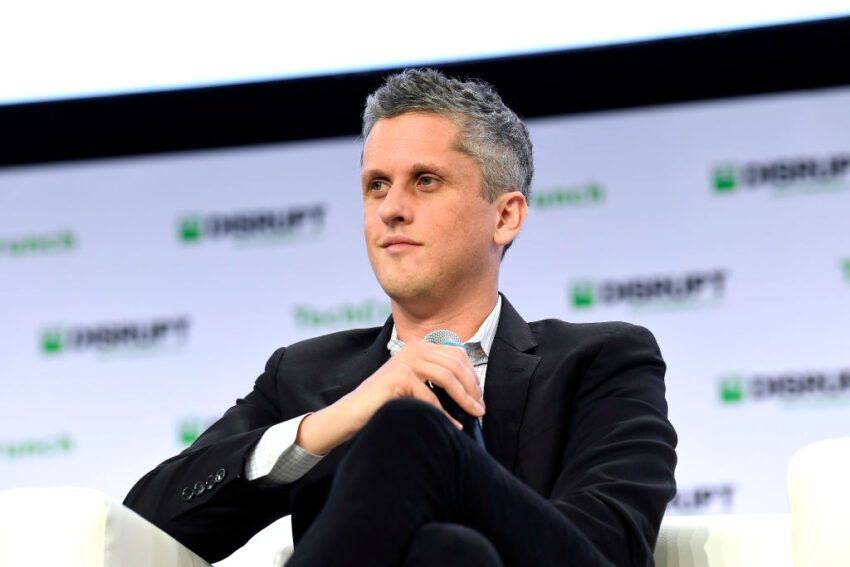
aaron levie on building for the long At TechCrunch Disrupt 2025, Box CEO and co-founder Aaron Levie discussed the intricacies of innovation within a public company, the transformative impact of artificial intelligence on enterprise software, and the mindset required to adapt in an ever-evolving technological landscape.
aaron levie on building for the long
Innovation Within a Public Company
During the fireside chat, Levie emphasized that true innovation in a public company is not merely about launching new products but involves a comprehensive approach to reinvention. He noted that the pressure to deliver immediate results can often stifle creativity and long-term vision. “In a public company, you have to balance the need for short-term performance with the imperative to innovate for the future,” Levie explained. This balancing act is crucial for sustaining growth and relevance in a competitive market.
The Challenge of Short-Termism
Levie pointed out that many public companies face the challenge of short-termism, where quarterly earnings reports can overshadow long-term strategic goals. This can lead to a culture where innovation takes a backseat to immediate financial performance. “It’s easy to get caught up in the quarterly cycle,” he said. “But if you’re not thinking about where the industry is going, you risk becoming obsolete.”
To combat this, Levie advocates for a culture of experimentation within organizations. He believes that fostering an environment where teams are encouraged to take risks and learn from failures can lead to significant breakthroughs. “You have to create a safe space for innovation,” he stated, emphasizing that not every idea will succeed, but the lessons learned can be invaluable.
Examples of Successful Innovation
Levie shared examples from Box’s own journey to illustrate how the company has navigated these challenges. He discussed the importance of listening to customer feedback and adapting products accordingly. “Our customers are our best source of innovation,” he noted. By integrating user insights into their development process, Box has been able to stay ahead of industry trends and meet evolving needs.
One notable example Levie highlighted was Box’s shift towards cloud-based solutions. As businesses increasingly moved to remote work, Box recognized the need for a more flexible and accessible platform. “We had to rethink our entire approach to product development,” he said. This pivot not only helped Box retain existing customers but also attracted new ones looking for reliable cloud solutions.
The Role of AI in Enterprise Software
Another significant topic of discussion was the role of artificial intelligence in transforming enterprise software. Levie noted that AI is not just a buzzword; it is fundamentally changing how businesses operate. “AI is enabling companies to automate processes, gain insights from data, and improve decision-making,” he explained.
Automation and Efficiency
Levie elaborated on how AI-driven automation can enhance efficiency within organizations. By automating routine tasks, employees can focus on higher-value activities that require human creativity and critical thinking. “The goal is to augment human capabilities, not replace them,” he stated. This perspective aligns with Box’s mission to empower organizations to work smarter, not harder.
He also pointed out that AI can help organizations make sense of vast amounts of data. “In today’s data-driven world, the ability to analyze and act on information quickly is a competitive advantage,” Levie said. With AI tools, businesses can identify trends, forecast outcomes, and make informed decisions faster than ever before.
Challenges and Ethical Considerations
Despite the benefits, Levie acknowledged that the integration of AI into enterprise software comes with its own set of challenges. Concerns around data privacy, security, and the ethical use of AI are paramount. “As we develop AI solutions, we must prioritize transparency and accountability,” he urged. Levie emphasized the importance of building trust with customers by ensuring that AI systems are designed responsibly.
He also highlighted the need for continuous learning and adaptation in the face of rapidly evolving AI technologies. “The landscape is changing so quickly that organizations must be agile and ready to pivot,” he said. This requires not only technological investment but also a commitment to upskilling employees to work effectively alongside AI tools.
The Mindset for Continuous Evolution
As Levie discussed the future of enterprise software, he stressed the importance of cultivating a mindset geared towards continuous evolution. In a world where technology is advancing at an unprecedented pace, organizations must be willing to adapt and innovate constantly.
Embracing Change
Levie encouraged leaders to embrace change rather than resist it. “Change is the only constant in technology,” he remarked. Organizations that cling to outdated practices or technologies risk falling behind. He urged leaders to foster a culture that embraces change, encouraging teams to experiment and explore new ideas.
Moreover, Levie believes that collaboration is key to driving innovation. “No one has all the answers,” he said, emphasizing the value of diverse perspectives. By bringing together cross-functional teams and encouraging open dialogue, organizations can unlock new ideas and solutions.
Investing in Talent
Investing in talent is another critical aspect of maintaining a competitive edge. Levie pointed out that attracting and retaining skilled employees is essential for driving innovation. “The best ideas come from people who are passionate about what they do,” he stated. Organizations must create an environment where employees feel valued and empowered to contribute their ideas.
Levie also highlighted the importance of mentorship and professional development. “We need to invest in our people, helping them grow and evolve alongside the technology,” he said. By providing opportunities for learning and growth, organizations can build a workforce that is adaptable and ready to tackle future challenges.
Looking Ahead
As Levie concluded his discussion, he shared his vision for the future of enterprise software. He believes that the next wave of innovation will be driven by a combination of AI, cloud computing, and collaboration tools. “We’re just scratching the surface of what’s possible,” he said, expressing optimism about the potential for technology to transform how businesses operate.
Levie also underscored the importance of maintaining a long-term perspective. “It’s easy to get caught up in the latest trends, but true innovation requires patience and perseverance,” he stated. Organizations must remain committed to their vision, even in the face of challenges and setbacks.
The Call to Action
In closing, Levie called on industry leaders to prioritize innovation and collaboration. “We have a responsibility to shape the future of technology in a way that benefits everyone,” he said. By fostering a culture of experimentation, investing in talent, and embracing change, organizations can position themselves for success in the rapidly evolving tech landscape.
Levie’s insights at TechCrunch Disrupt 2025 serve as a reminder that innovation is not a destination but a continuous journey. As the enterprise software landscape continues to evolve, the companies that thrive will be those that remain agile, open to new ideas, and committed to long-term growth.
Source: Original report
Was this helpful?
Last Modified: September 26, 2025 at 4:36 am
0 views















